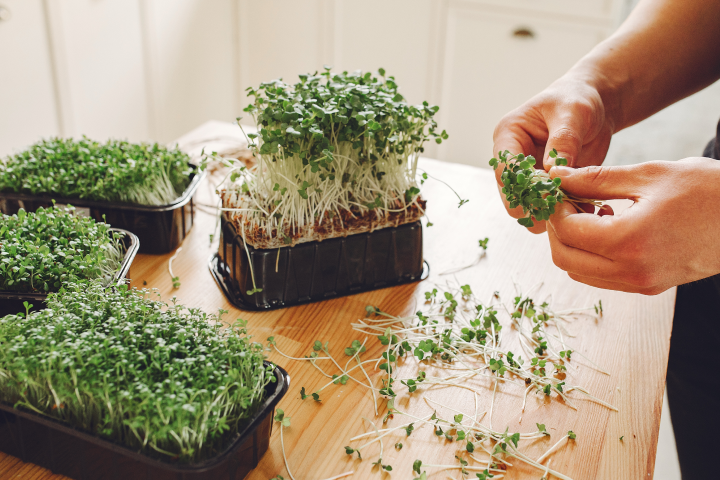tips to grow an indoor herb garden
Nothing can enhance the taste of your meal better than hand-picked herbs from your indoor garden. And anyone of us can grow indoor herb garden as long as you make sure to get started the right way. Herbs can do fine in any bright corner and do not need direct sunlight or any special light. The key to successfully growing an indoor garden is understanding the plant requirements and adapting smart techniques to give them what they need. Here are top tips to grow an indoor herb garden
1. Ample Lighting is Crucial :- Providing enough light is the most crucial factor in the growth of your indoor herb garden. The more light you are able to provide to your garden, the better they will grow. A bright sunny window or a sunroom that receives 6-8 hours of sunlight per day is best for the herbs. If the windows aren’t large enough to store the pots, you can add a table or a stand facing the window.
If the absence of direct sunlight, you can provide an additional light source for your indoor herb garden. Parsley, mint and chives are herbs that grow fine even with 2-3 hours of light every day.
2. Slow, Infrequent Watering is Best :- Watering the herbs well is important but too much water may be fatal for the plant. Therefore, a good drainage system is vital. Allow the pots to dry in between two watering sessions. Insert fingers and test if the soil is dry at least up to 2 inches before watering it.
Use a hand spray to water the top slowly as pouring in a lot of water at once may get drained giving little time for absorption. Add some sand or vermiculite to the potting soil helps balance out between absorption and drainage.
3. Grow Each Herb in a Separate Pot :- It is a common practice to grow multiple herbs in the same pot when outdoors. However, for the indoor garden, it is recommended to grow each herb in a separate pot. You may need to adjust the amount of light one herb is receiving, which might not be right for another plant. Similarly, soil and manure needs for each herb might be different. When you grow plants separately, it is much easier to address the needs
4. Seaweed or Fish Based Organic Fertilizer :- Both seaweed and fish emulsion have a high concentrate of nitrogen which promotes strong healthy growth for your indoor herbs. You can fertilize your plants once a week, fortnight or month depending on the herb you have planted. Some people also prefer making a low-concentrate solution of fertilizer and mix it when watering the plant.
5. Enable Proper Air Circulation :- Leave enough space when placing pots to facilitate proper air circulation around your herbs. When the herbs are placed too close or in contact with one another, it results in spreading of disease. It is a good idea to rearrange the pot once in a while. This allows breathing room to the herbs and prevents the air from becoming too stagnant.
Keep a balanced mix of water, light, and temperature. If the temperature is high, shift the plant from direct sunlight. Similarly, a herb in a clay pot in low light will need lesser water as compared to herb in a plastic pot facing the window. And most importantly, show your indoor herb garden some love.
 Residential
Residential
 Ongoing
Ongoing
 Completed
Completed Upcoming
Upcoming Commercial
Commercial





